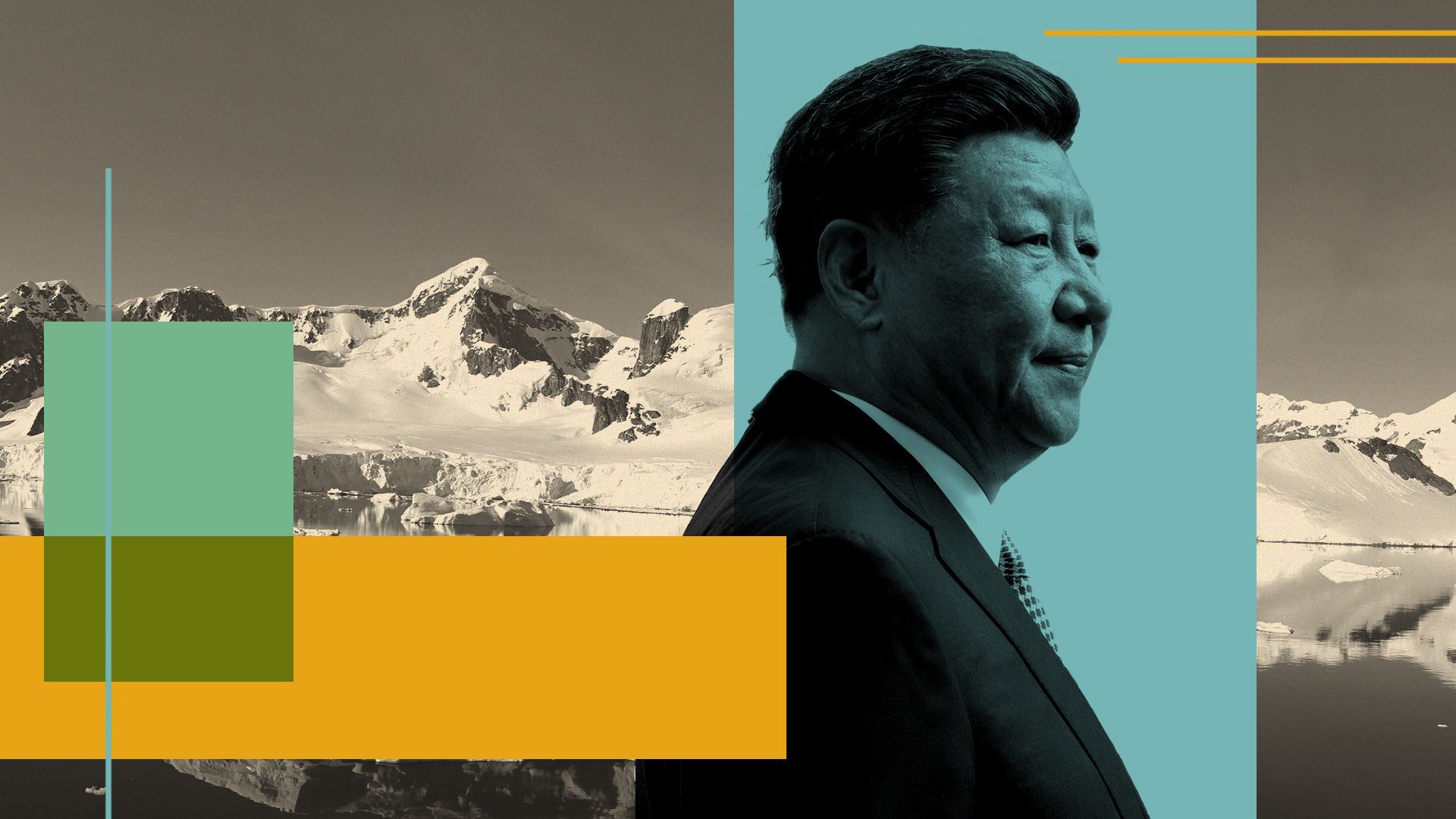Behind Biden's China scolding at COP26
Add Axios as your preferred source to
see more of our stories on Google.

Illustration: Allie Carl/Axios
GLASGOW, Scotland — President Biden's declaration Tuesday that Xi Jinping has “walked away” from an opportunity to help save the planet showed the intensity of the simmering rivalry and mutual distrust that have been lingering in the back of the COP26 climate summit.
Why it matters: The U.S. and China combine for nearly 40% of the world’s greenhouse gas emissions, meaning that any major climate breakthroughs require both superpowers on board.
- But the rivalry that characterizes the rest of the relationship also made its way to Glasgow, with Biden scolding China for not showing up and Chinese leaders suspecting the U.S. can't actually deliver on Biden's promises.
Driving the news: Speaking to the press before departing Glasgow, Biden said that in skipping COP26, Xi — who has not left China for 21 months due to the pandemic — had made a “big mistake.”
- “The single most important thing that’s got the attention of the world is climate, everywhere from Iceland to Australia. It just is a gigantic issue, and they’ve walked away,” Biden continued. “How do you do that and claim to be able to have any leadership mantle?”
The other side: Chinese leaders, meanwhile, suspect that Biden is making promises America won’t keep, Li Shuo, who is based in Beijing for Greenpeace, told Axios.
- “What you have in China is more and more implementation but the headline targets are not up to the ambition that we need. What you have in the U.S. is completely the opposite,” Li said.
- “You have all the ambition in your targets, in your rhetoric. You’re not necessarily implementing that because you are constrained domestically by your politics.”
- And while Republicans in Congress contend that the U.S. shouldn’t act if China won’t, Li says, a growing chorus in Beijing argues that Biden is politicizing the climate agenda to constrain China’s development.
The backstory: Xi opted against both traveling to Scotland and offering new pledges to cut emissions, which arguably undermined the summit before it even began as China is easily the world’s top carbon emitter.
- Biden, meanwhile, offered big initiatives during the world leader portion of the summit, which ended on Tuesday — even though his struggles on Capitol Hill threatened his climate agenda and reverberated in the halls of the conference.
The state of play: The Chinese delegation was virtually invisible during the opening days of the summit, but climate envoy Xie Zhenhua is in Glasgow and will play a key role in negotiations over the next two weeks.
- Xie and Biden’s climate envoy, John Kerry, know each other well, and met one-on-one before the summit began.
- Kerry has proposed that U.S. and China engage on climate as a “critical standalone issue,” but Chinese leaders have rejected that framing. Meanwhile, there’s strong resistance in Washington to giving China leeway on other issues to garner cooperation on climate, Axios’ Bethany Allen-Ebrahimian reports.
Biden rejected the idea that the U.S. should only accelerate its climate action if China does as well, saying the U.S. should act “because we want to be able to breathe and we want to be able to lead the world.”
- And U.K. Prime Minister Boris Johnson hinted on Tuesday evening he was pushing China to move its target for peak emissions from “before 2030” to 2025 — a pledge that would profoundly change the outlook after Glasgow.
The bottom line: The world can’t address the climate crisis if China and the U.S. aren’t moving in the same direction, Li said, but “they don’t necessarily have to move in the same direction holding each other’s hands.”
